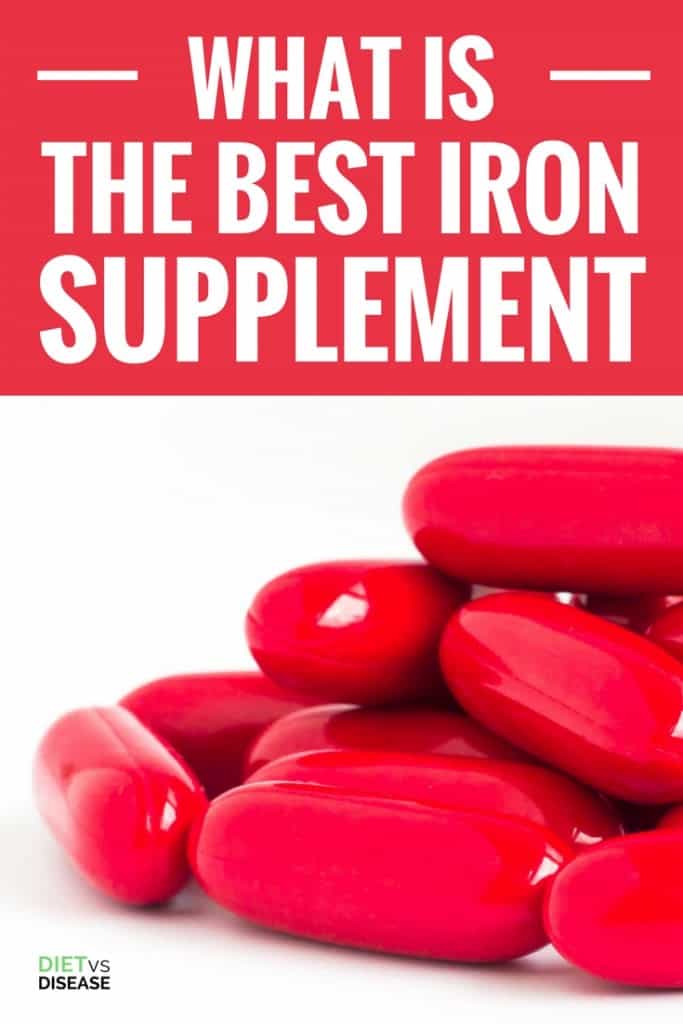Iron is an essential nutrient with many important functions.
Problem is many people aren’t getting enough iron from their diet, which can lead to many negative health consequences.
This article looks at which iron supplement is the best for you.
What Is Iron and Why Do We Need it?
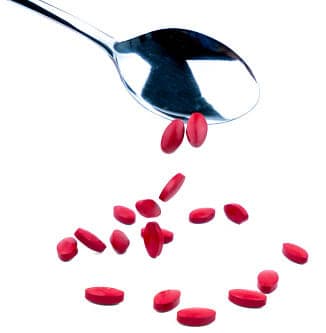
Iron is a mineral that has many important roles in our body.
It’s most important function is to help carry oxygen around the body. It also helps support our immune system, supports muscle function and cognitive functioning.
Unfortunately, iron deficiency is one of the most common nutrient deficiencies in the world. Not having enough iron can make you feel very tired both physically and mentally.
Summary: Iron is an important mineral for carrying oxygen around the body and we need enough iron every day to support our energy needs. Unfortunately, iron deficiency is very common.
How to Get Iron from Food Sources
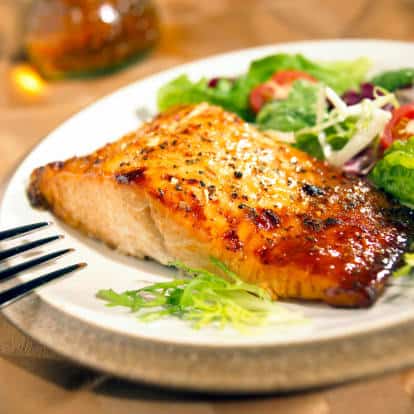
Iron is found in two different forms; heme iron and non-heme iron.
Heme refers to the chemical composition of iron. Put simply, heme iron is a form of iron which is easily absorbed by our small intestine into our blood stream (1).
Unfortunately, non-heme iron has a slightly different composition to heme iron. Therefore, it’s not as easily absorbed and usually needs an acidic component to help convert it to the heme form (2).
Heme iron is found in animal foods such as red meat, chicken, and fish. Non-heme iron is found in plant foods such as fortified breakfast cereals, green leafy vegetables, nuts and seeds, and lentils and legumes.
This is why vitamin C (ascorbic acid) is often found in iron supplements. It is well known for its ability to help absorb iron. Vitamin C is found in many different fruits and vegetables (3).
Summary: Iron is found in many different foods. The best source of iron comes from red meat, chicken and fish. Iron from plant sources need extra help when being absorbed by the body.
Are We Meeting Our Daily Iron Requirements?
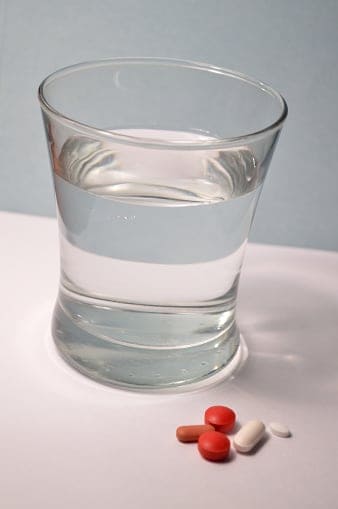
Many people are not meeting their daily requirements.
Additionally, some people need more iron than others including children, pregnant women, and pre-menopausal women (4).
Men and women also have different daily requirements for iron:
Males
- 2-18 years: 7-11 mg
- 19-59 years: 8 mg
Females
- 2-18 years: 7-15 mg
- 19-50 years: 18 mg
- Pregnancy: 27 mg
Recent survey results (PDF) found the average daily intake for women over the age of 20 was 12.6mg. Men had a higher average intake of 16.6mg of iron.
Females aged from 2-19 years averaged 12.3mg of iron per day, whereas males aged 2-19 years averaged slightly more at 15.4mg of iron per day.
Summary: Women generally have lower intakes of iron than men even though they actually need more. This means deficiency is not uncommon in women.
Iron Deficiency and Anemia

A diet low in iron can lead to low levels of iron in the blood.
This leads to depleted iron stores, known as iron deficiency.
Iron deficiency can cause low levels of hemoglobin, which is a molecule that stores iron and carries iron bound to oxygen around the body. Low hemoglobin levels due to iron deficiency is known as iron deficiency anemia.
Not enough hemoglobin means our body won’t get all of the oxygen it needs to function properly. The heart then needs to work harder to make sure our muscles and organs get the oxygen they need.
This is why we often feel tired or have difficulty concentrating when we have iron deficiency or anemia.
Some other negative health consequence of iron deficiency include weakness, difficulty concentrating and a decreased immune response (5).
Iron deficiency in babies and children is also quite serious. It can often lead to poor growth and impaired development (5).
Summary: Low iron can cause low haemoglobin levels which is known as iron deficiency anemia. Both iron deficiency and anemia have many serious health consequences for both adults and children.
Who is at Risk of Iron Deficiency?

Some people are more at risk of iron deficiency than others.
Vegetarians and vegans are at a higher risk because iron from plant foods are not as well absorbed as iron from animal foods, as mentioned before.
Menstruating women are also at a higher risk of iron deficiency because of increased blood losses.
Children who are fussy eaters can also be at risk of iron deficiency if they dislike or refuse to eat foods which are good sources of iron.
Should I Be Taking an Iron Supplement?
If you are feeling tired and run down a blood test can help determine if you are iron deficient.
A blood test which indicates iron levels below the normal range is a good indication you need an iron supplement to bump your levels back up.
Once your iron levels are back to normal, a diet that contains plenty of iron rich foods and foods that support iron absorption can help to maintain iron levels.
Regular use of an iron supplement is only recommended for those at risk of iron deficiency (as mentioned above).
Summary: A blood test is the best way to know for sure if you should be taking an iron supplement or not.
Iron Supplements
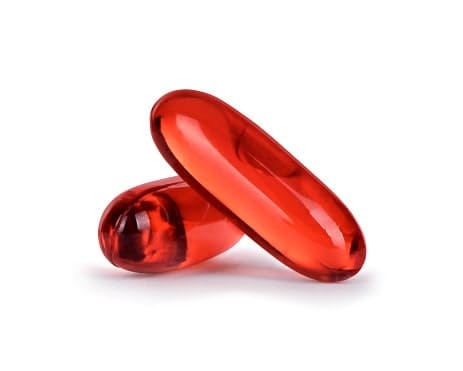
There are many different forms of iron supplements available.
This can make it confusing when deciding which one to buy.
Below you can find the different types of iron supplements available:
Ferrous Iron Supplements
Ferrous iron is one of the most commonly recommend and prescribed forms of iron (6).
It’s available as ferrous sulphate, ferrous fumarate, and ferrous gluconate and are typically recommended as they provide a high dose of elemental iron per tablet, are relatively cheap and easily accessible.
Ferrous iron is easily absorbed by the small intestine and is usually seen as the best approach to treating iron deficiency and anemia (6).
However, they are known to causes significant gastrointestinal side effects including nausea, bloating, wind, heart burn, abdominal pain, constipation, and black/tarry stools (4)
Newer formulations of ferrous sulphate have less side effects because they provide a slow release of iron into the body (6, 7, 8).
Because ferrous iron supplements provide a high amount of elemental iron they are often a good first choice of supplement to treat iron deficiency.
Ferric Iron Supplements
Ferric iron formulations usually produce less side effects compared to ferrous iron (9).
This might be a good choice if you’ve already tried a ferrous supplement and are experiencing unpleasant side effects.
However, this type of iron formulation has not yet been shown to be as effective at treating iron deficiency or anemia when compared to ferrous iron supplements. This is because the bioavailability of ferric iron is usually 3-4 times less than that of ferrous iron (6).
As mentioned before, iron needs to be in the ferrous form to be absorbed by the small intestine. Therefore, ferric iron needs to be converted to ferrous before it can be absorbed. This process can be assisted by adding vitamin C to the supplement which helps this conversion process (6).
Ferric iron supplements also tend to be more expensive than ferrous supplements. So this may not be a good option if you’ll be taking your supplement for quite a few months.
Iron Amino Acid Supplements
Iron supplements are also available in a form where iron is bound to an amino acid.
For example, as iron amino acid chelate, ferrous diglycinate or ferrous bisglycinate.
In a study that compared the tolerability of different iron supplements, those who took the iron amino acid chelate supplement reported significantly less side effects compared to those who took ferrous sulphate (10).
Studies have also reported iron amino acid supplements are just as effective as ferrous sulphate in maintaining normal iron levels (11).
So this is a good option if ferrous supplements are causing side effects.
However, iron amino acid supplements usually don’t have enough elemental iron per tablet to help treat deficiency. They would be more beneficial to take to maintain your iron levels or to prevent deficiency.
Summary: Ferrous iron supplements usually have the highest amount of elemental iron per tablet and are therefore a good choice when treating iron deficiency and anemia. Ferric iron supplements are an alternative if you are experiencing side effects. However, they may not work as quickly at restoring iron levels.
Recommended Dosages
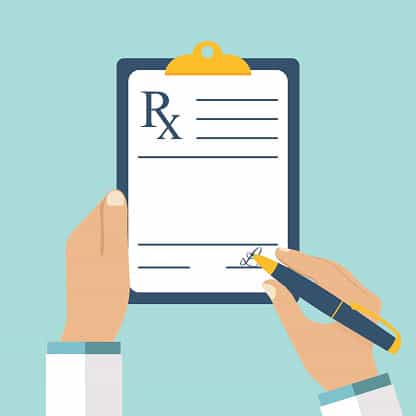
Each different iron supplement provides varying amounts of elemental iron.
This is one of the most important factors to consider when choosing a supplement. Elemental iron is the actual amount of iron you will receive from your supplement.
Iron supplements should list both the amount of elemental iron (in milligrams) and the type of iron.

Image source.
Regardless of which iron supplement you choose, it’s important you are receiving the right amount of elemental iron from your supplement.
To treat iron deficiency, the recommended dose (PDF) of elemental iron should be between 60 to 120 mg of elemental iron per day for a minimum of three months.
When taking an iron supplement, you should never take more than what is recommended. Too much iron can be toxic to the body and lead to serious health consequences (12).
Lower doses of elemental iron are usually found in multivitamins. This dosage may help to maintain iron levels, but won’t be enough to correct iron deficiency and restore normal iron levels.
Summary: Be sure to take the right amount of iron when starting a new supplement. This will depend on whether you need to restore low iron levels or if you only need to maintain iron levels.
How and When to Take an Iron Supplement
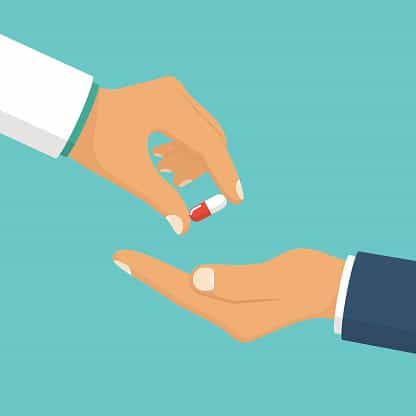
An iron supplement is usually best taken on an empty stomach.
This is because other minerals and compounds found in some foods and drinks may interfere with absorption.
It is often suggested that other minerals such as calcium, magnesium and zinc supplements may affect the absorption of iron (13, 14, 15).
However, some research suggests these minerals have no effect on long term iron levels (16, 17).
Compounds found in tea and coffee can also affected the absorption of iron. We should therefore stick to drinking tea or coffee in between meals (18).
People who take a type of medication known as Proton Pump Inhibitors may also require additional iron supplementation.
This is because iron requires a certain amount of stomach acid to help with the absorption process. These medications decrease the amount of stomach acid produced and can therefore reduce the amount of iron absorbed (19, 20).
Summary: It is still considered best to take an iron supplement on an empty stomach. Be sure to check with your doctor or pharmacist if you are taking any other medications which can affected the absorption of your supplement.
Other Considerations

Sometimes iron supplements alone won’t help to restore iron levels.
If your iron levels are still not back to normal after regularly taking a high dose iron supplement, you may need to consider how much vitamin A you are getting from your diet.
Vitamin A helps to release iron from our bodies iron storage sites. Vitamin A deficiency can therefore prevent proper iron metabolism (21).
Supplementing the diet with a vitamin A supplement may therefore help to correct iron deficiency (22).
Vitamin A supplementation is not recommended in pregnant women as high doses of vitamin A can be toxic. Pregnant women should therefore aim to meet their vitamin A requirement from their diet.
Summary: There are other reasons your iron levels might be low. It’s a good idea to have your levels regularly checked to make sure you iron supplement is working.
Best Iron Supplement Overall
The best iron supplement is still unclear.
There are many factors to consider when choosing a supplement.
Being able to regularly take your iron supplement and choosing a one which contains the right dosage of iron are the two most important things to consider.
If tolerated, a ferrous supplement is a good first option due to its proven ability to restore normal iron levels. To prevent side effects, it may be necessary to begin at a lower dosage and slowly work up to the highest recommended dosage.
If side effects have been experienced, then switching to either an iron amino acid formulation or ferric iron supplement should be considered.

